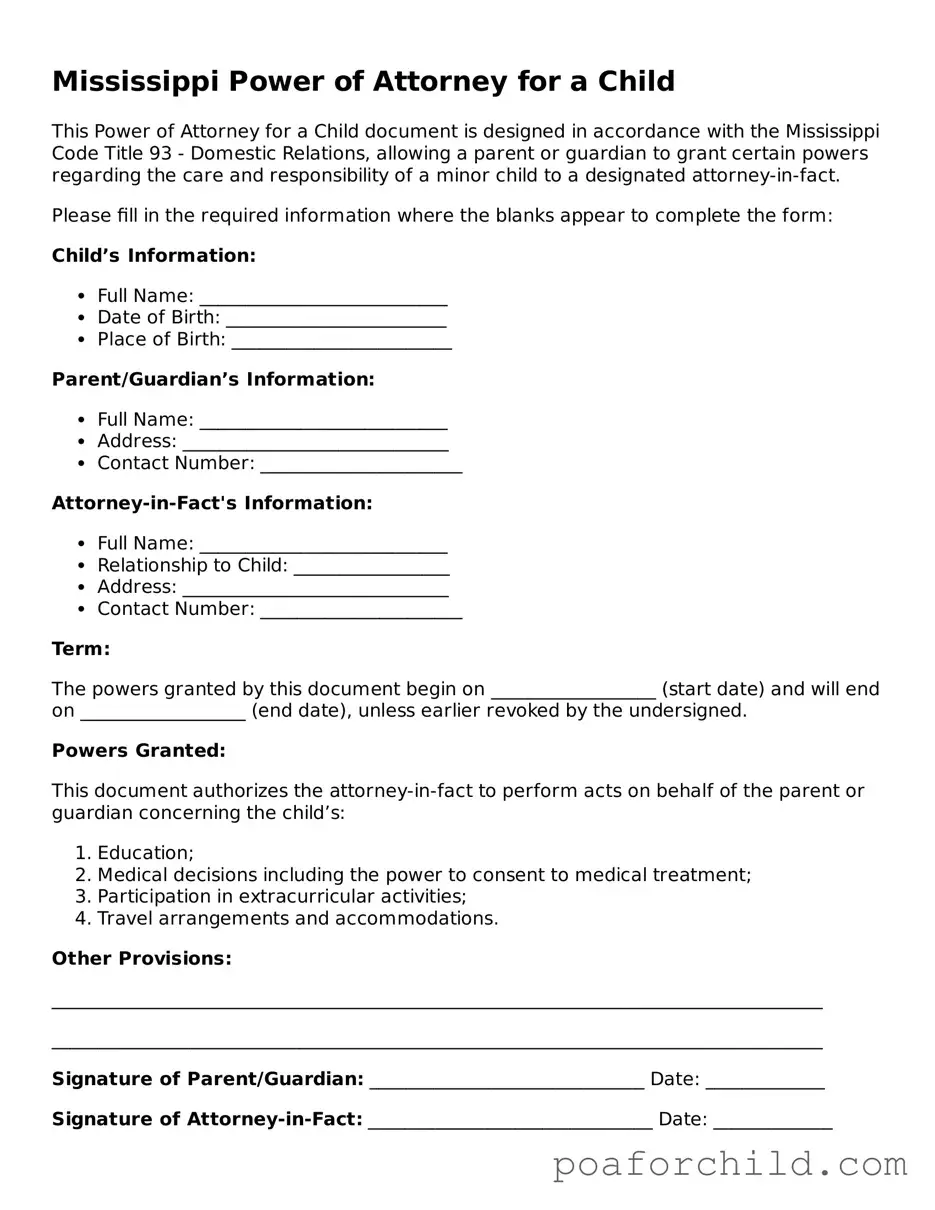Detailed Guide for Using Mississippi Power of Attorney for a Child
Filling out the Mississippi Power of Attorney for a Child form is a crucial step in ensuring that a responsible adult has the legal authority to make decisions and take actions on behalf of a minor child. This action often comes into play when parents or legal guardians are unable to care for the child due to various reasons, such as travel, illness, or military service. The process, while it may seem daunting at first, can be completed successfully with careful attention to detail and a comprehensive understanding of the necessary steps. Below is a step-by-step guide designed to assist in this important task.
- Begin by reading through the entire form to familiarize yourself with its contents and requirements. Understanding what information you need will streamline the process.
- Gather all necessary personal information about the child or children, including full legal names, birth dates, and social security numbers.
- Collect the full legal names, addresses, and contact information of the person(s) to be appointed as the attorney(s)-in-fact, enabling them to act on the child's behalf.
- Specify the powers being granted to the attorney(s)-in-fact. This includes decisions related to the child’s education, health care, and general welfare.
- Determine the duration for which the power of attorney will be in effect. Mississippi law may dictate specific time limits or conditions that must be met for the document to remain valid.
- Review any legal requirements specific to Mississippi regarding witnesses or notarization. Many states require such documents to be notarized or signed in the presence of witnesses to ensure their legality.
- Complete the form with the gathered information. Be sure to write clearly and review for any errors or omissions.
- Sign and date the form in the presence of a notary public, if required. Ensure that any designated attorney(s)-in-fact also sign the document.
- Provide the attorney(s)-in-fact with original copies of the power of attorney. Keep a copy for your records and consider providing copies to other relevant parties, such as the child’s school or healthcare provider.
After completing the Mississippi Power of Attorney for a child form, you have taken a significant step in safeguarding the child’s welfare under circumstances where the parents or current guardians cannot perform their duties. It is advisable to consult with a legal professional if there are any concerns or questions regarding the form or its execution. Remember, the well-being of the child is the priority, and ensuring that they are in capable hands is paramount.
